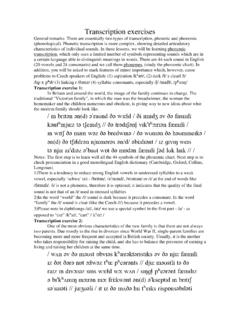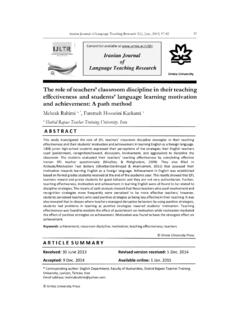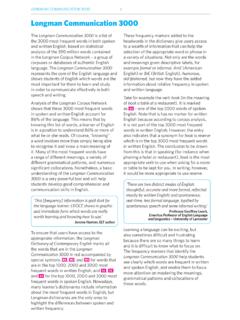Transcription of Attitudes towards English Language Learning among EFL ...
1 Journal of Education and Practice ISSN 2222-1735 (Paper) ISSN 2222-288X (Online) , , 2015 6 Attitudes towards English Language Learning among EFL Learners at UMSKAL Shameem Ahmed Lecturer ( English ), PPIB, Level-6, Universiti Malaysia Sabah, Labuan International Campus, Jalan sungai Pagar, 87000 Labuan, Malaysia Abstract This paper analyses the result of a survey on 238 undergraduate EFL students at a public university in Malaysia. The survey focused on their attitude towards English Learning and causes that might have hindered their Learning . For data collection, a 19 item questionnaire were designed and administered on 238 students.
2 The objective of this study was to investigate (1) The Attitudes of the learners towards the use of English in different areas; (2) Causes that may have influenced the effect of English Learning for students (3) Perspectives of English Learning among non-major English learners in Malaysia. Results of the qualitative analysis show that the attitude towards English Language Learning and using the Language in various domains of usage is extremely positive. The data also revealed that most of the students had negative feelings or fear regarding classroom instructions in their Learning experience. Students of different fields varied in Attitudes towards English Language Learning in terms of domains of usage and focus of Learning skills, which shows that a single curriculum or teaching methodology is not adequate.
3 Several suggestions have been made regarding teaching methodology, curriculum, teaching materials, and the status of English in Malaysia from this point of view. Key words: EFL learners, Learner Attitudes , Learning environment, Language Learning , Malaysia 1. Introduction There are many possible reasons for studying a foreign/second Language . Probably a major number of Language students in the world do it because it is on the curriculum. Some people want to study English or another foreign Language because they think it offers a chance for advancement in their professional lives. They will get a better job with two languages than if they only know their mother tongue. English has a special position here since it has become the international Language of communication.
4 Some Language students find themselves living in a target Language community either temporarily or permanently. The students would need to learn English to survive in that community. Students who are going to study at a university in the USA, UK, Australia or Canada, on the other hand, may need English so that they can write reports or essays and function in seminars. The term English for Special or Specific Purposes has been applied to situations where students have some specific reason for wanting to learn the Language . Business executives need English for international trade. Waiters may need English to serve the customers. It will be clear from this list that there are many possible reasons for studying a Language (Harmer, 2002).
5 People involved in Language teaching often say that students who really want to learn will succeed whatever the circumstances in which they study. Motivation that students bring to class is the biggest single factor affecting their success. Motivation is some kind of internal drive that encourages somebody to pursue a course of action. In general strongly motivated students with long-term goals are probably easier to teach than those who have no such goals and therefore no real drive. For such students short-term goals will often provide the only motivation they feel. Students have motivation that is separated into two main categories: extrinsic motivation, which is concerned with factors outside the classroom, and intrinsic motivation, which is concerned with what takes place inside the classroom.
6 Some students study a Language because they have an idea of something which they wish to achieve. Many other factors have an impact upon a student s level of extrinsic motivation and most of these have to do with his or her attitude to the Language . Another factor affecting the attitude of students is their previous experience as Language learners. If they were successful then they may be pre-disposed to success now. Failure then may mean that they expect failure now. In the changing scenario of Language teaching theories and methodologies, where the learners, rather than the teachers, are gaining a central position, learners attitude plays a vital role in maximizing Learning and teaching output.
7 Learners attitude can be defined as a collection of feelings regarding Language use and its status in the society. The feelings are good, bad and neutral. They can nurture or hinder the Learning process effectively. Even after syllabus, teaching materials, teacher training programmes have been changed and made up to date from time to time, the overall output in the competence of the students has never been improved. One reason behind this is that the changes have always been powerfully constrained by the western cultural assumptions and lack of knowledge of the social contexts. Not much research has been directed to the topic of how the local educational/teaching environment has influenced students Learning when the students are not Journal of Education and Practice ISSN 2222-1735 (Paper) ISSN 2222-288X (Online) , , 2015 7 English major, but studying English as non-majors due to educational requirements and professional needs.
8 The notion of attitude, as a strong variable, applies in this situation. Status and role of English in Malaysia The use and importance of English in Malaysia has undergone many phases. English came into being in Malaysia during the seventeenth century when the British came and colonized the country. Their presence gave the English Language pre-eminence in the government, business and social arenas. At this period, English was predominantly used as a Language by the elites, communicated and used by a small group of people. After the independence in 1947, policies regarding education and the use of English began to change. The whole nation became aware of a need for a national identity. During the 1970s, Bahasa Malaysia became the principal Language as the medium of instruction in schools and English was relegated to a minor role in the education system.
9 The ever-increasing advancement of science and technology and the advent of globalization changed the whole scenario of the status and use of English in Malaysia. Ever since, English Language has played an important role in the education system and different aspects of life especially in business and commerce. The whole country and its people are now very aware of the need to master the Language in order to adjust and cater to the demand of English as a global Language (Foo and Richards, 2004). This idea was further enhanced and reinforced by Prime Minister Tun Dr. Mahathir Mohamad in 2002 when he declared that mathematics and sciences will henceforth be taught in English from the first year of primary school (Rahman, 2008).
10 With its multiethnic background, the people of Malaysia have divergent Attitudes towards the English Language . The status of English in Malaysia has been in constant debate. The use of English is wide-spread in Malaysia even though it is not the official Language of the country. Notwithstanding, the usage of English is widespread as a Language of business, technology, and diplomacy and the Language of everyday life for many people. Study Objectives This current study was done out of academic inquisitiveness and the desire to know the above learners response and reaction to Learning English as a second or foreign Language at the tertiary level. The objective of this study was to investigate: (1) The Attitudes of the learners towards the use of English in different areas; (2) Causes that may have influenced the effect of English Learning for students at UMSKAL.
















